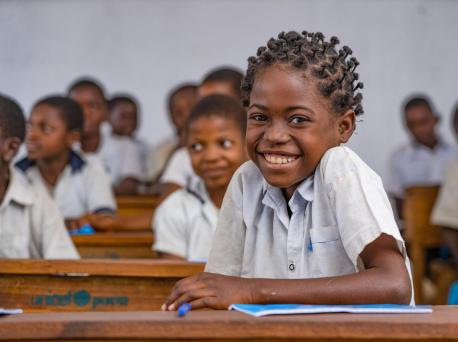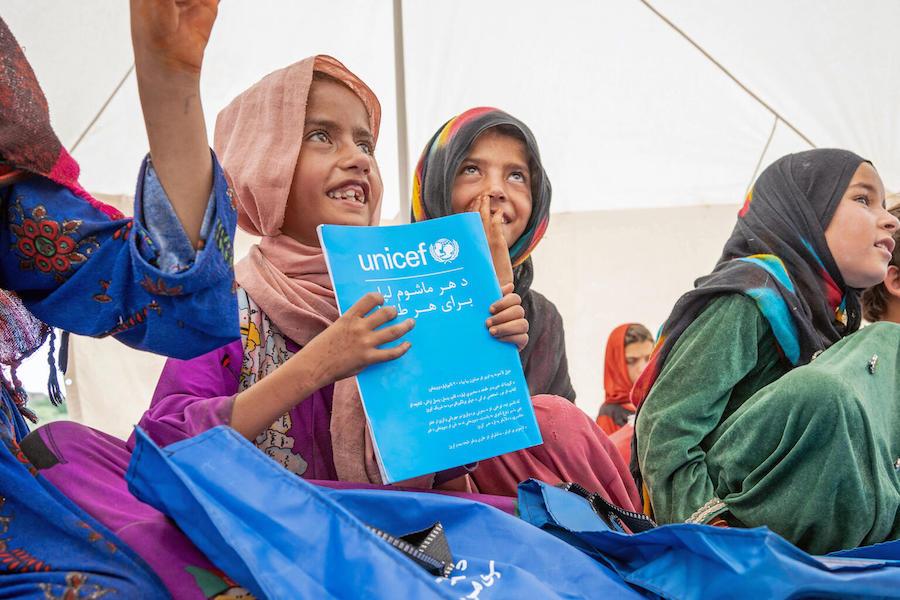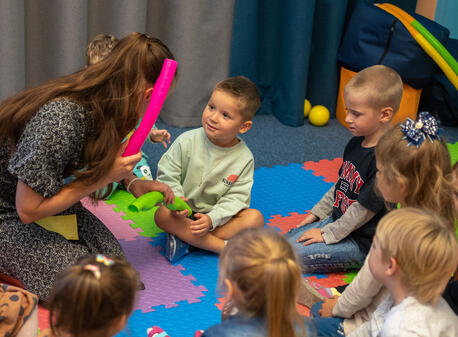
10 Things Keeping Girls Away From School
Every child wants to learn, and every child has the right to an education. But around the world, 129 million girls are missing out on school.
From poverty and household chores to conflict and child marriage, girls face multiple barriers in their quest for a quality education. UNICEF and partners are tackling gender inequality, working to ensure that every girl has the opportunity to graduate from high school and reach her full potential.
What stands between girls and a quality education?
Addressing cultural barriers to girls' access to education
Education is more than a right: it's also a lifeline. Investing in a girl's education through high school is the best way to lift her and her future children out of poverty. UNICEF works with partners on every level all over the world to keep girls in school and remove the barriers that stand in their way.
In the past year, more than 1 million girls in grades 7-12 have been barred from attending high school in Afghanistan. UNICEF is advocating to get Afghanistan's girls back to class, training 1,200 female teachers, providing 38 million high school textbooks and expanding community-based education classes.

Providing infrastructure and services that help girls stay in school
COVID-related school closures disrupted the educations of more than half of all students worldwide. Girls have been particularly hard hit: an estimated 11 million may never return to the classroom. UNICEF continues to support the safe reopening of schools and to educate communities on the dangers of child marriage, early pregnancy and child labor.
In South Sudan, UNICEF is providing girls with menstrual products and a safe place to wash and change so they don't have to skip school once a month. In Nigeria, UNICEF WASH teams are improving water treatment facilities so time spent fetching water won't keep girls from getting to class on time.
Helping communities recover from conflict and disaster
When natural disasters interrupt children's schooling, UNICEF is there to help them get back to learning. After a volcanic eruption in the Democratic Republic of the Congo, UNICEF distributed learning materials and helped communities rebuild destroyed and damaged schools.
Since the start of the war in Ukraine, more than 272,000 children in Ukraine have benefitted from learning interventions with supplies provided by UNICEF, and over 400,000 children have engaged in formal or nonformal education. UNICEF is supporting host governments to extend quality education services to Ukrainian child refugees, and working with partners to provide a nurturing classroom environment for children uprooted by war.
UNICEF is working globally to help keep girls in school. Your contribution can make a difference. Please donate today.
The bipartisan Keeping Girls in School Act is designed to harness the power of U.S. Government to address the barriers that prevent girls from getting an education. Urge your Members of Congress to support legislation that empowers girls around the world.


